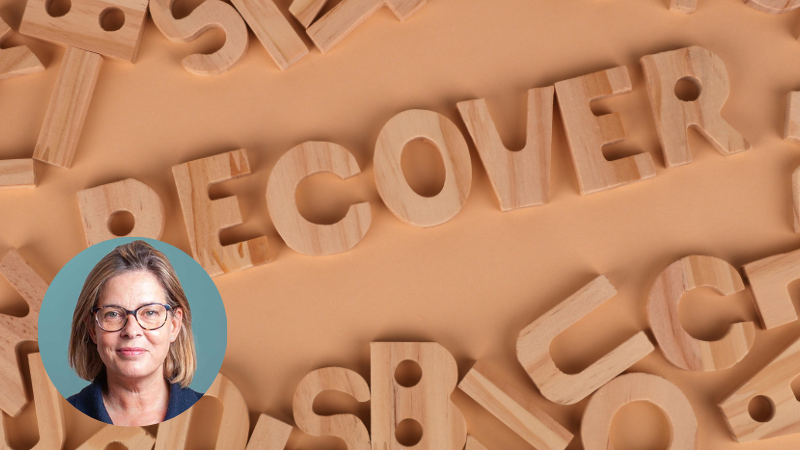Counselling for Addiction – Help on the Road to Recovery
By Louise Medhurst, Pluralistic Counsellor at The Eaves
I’ve found that counselling people who are struggling with addiction teaches us many things. One thing that really stands out for me is that the stigma surrounding addiction fuels feelings of shame and guilt which make the whole therapeutic process more complicated. Trying to talk about addiction beneath the cloak of those feelings takes time, time to build trust in the therapeutic relationship and time to unravel the history of the addiction. People who struggle with addiction aren’t just addicts, they are damaged, hurt, and vulnerable people.
Addiction impacts people physically, emotionally, and socially. It not only affects the individual but also those closest to them. Along the route to recovery, counselling can play a vital role, offering a safe space for healing, self-discovery, and transformation. In this blog, I’ll look into how counselling can provide invaluable support to those struggling with addiction.
Understanding Addiction
I’ve found from the people who I’ve seen in counselling for addiction have all faced some kind of traumatic event or chaotic start in life and their addiction started as a coping strategy.
Addiction is characterised by the compulsive use of substances or engagement in behaviours, despite harmful consequences. It often stems from a combination of environmental, and psychological factors. Common forms of addiction include substance abuse (alcohol, drugs) and behavioural addictions (gambling, internet, shopping). Often there will be multiple addictions in the same family which adds to the chaos for those coming into that family.
It’s when the harmful consequences of addiction outweigh the pain that was supposed to be relieved, that counselling comes in.
The Role of Counselling
I’ve found that by exploring how the addiction started and what purpose it provided is key for the client to develop greater awareness. Those feelings that come with stigma, the guilt and the shame, only serve to continue the cycle of addiction, and by exploring these in a supportive and non-judgmental environment, alternative coping strategies can be developed, and the route to recovery can be discovered.
Here are some of the aspects of counselling which might be used:
Identification and Self-Awareness: Together counsellors and clients will aim to identify the underlying factors that contribute to the addiction. By understanding the triggers and emotional drivers, clients can gain insights into their behaviour patterns.
Behavioural Change: Addiction often involves deeply ingrained habits. Counselling employs evidence-based techniques, such as cognitive-behavioural therapy (CBT), to help individuals challenge negative thought patterns and adopt healthier behaviours.
Relapse Prevention: One of the primary goals of counselling is to equip individuals with tools to prevent relapse. Counsellors work with clients to develop strategies for coping with cravings, stress, and triggers that may lead to relapse.
Emotional Regulation: Addiction can mask underlying emotional pain. Counselling provides a safe space to process these emotions, teaching individuals healthier ways to manage and express their feelings.
Building Support Networks: Counselling sessions can help individuals foster connections with peers and support groups. Building a network of people who understand their struggles can provide a sense of belonging and encouragement.
Holistic Approach: Addiction affects various aspects of an individual’s life. Counselling takes a holistic approach, addressing mental, emotional, and even spiritual needs to promote overall well-being.
Personal Growth and Empowerment: Through counselling, individuals can develop a sense of self-empowerment and confidence in their ability to overcome challenges. This newfound strength contributes to the recovery journey.
If you think that counselling can help you with your addiction or addictions, please get in touch. Don’t let the stigma stop you.
The Eaves Counselling and Psychology
Louise Medhurst, Counsellor and Psychotherapist at The Eaves, is based at our Guildford practice. To find out more about Louise, or to enquire about her latest availability, please visit her profile here
The Eaves Counselling and Psychology Ltd is a select professional body of Counsellors, Psychotherapists and Psychologists, providing high quality psychological care Monday to Saturday between 9am and 9pm from our practices in Guildford, Godalming, Farnham, Haslemere and online.
Find your practitioner in five easy steps
Are you a business owner or would like more support from your job? The Eaves’ own Employee Assistance Programme (EAP) service for small to medium businesses is easy, affordable and gives staff instant access to our large team of in-house Counsellors and Psychologists at a time and date to suit them. Contact us to find out more about our EAP service
If you need immediate support please find our list of useful contacts

